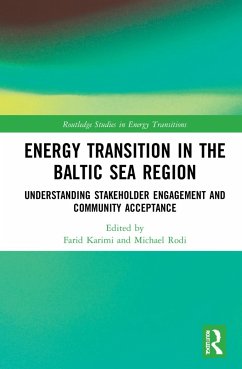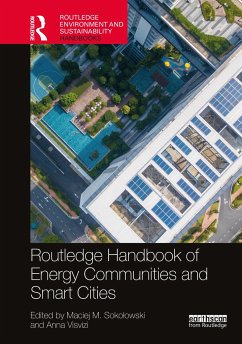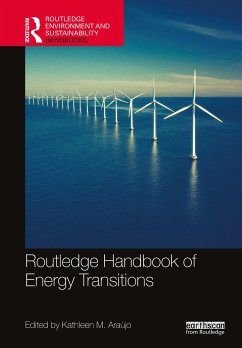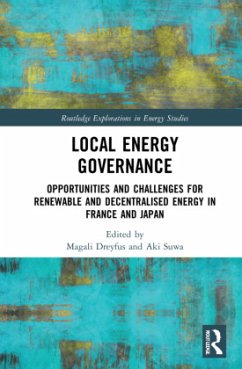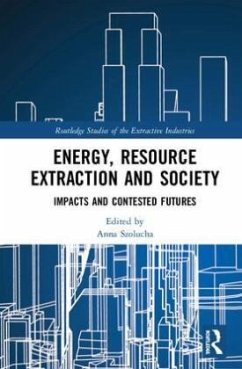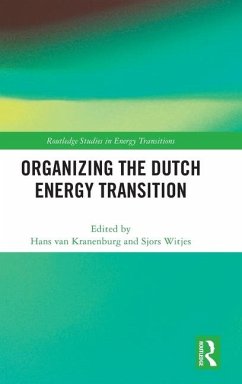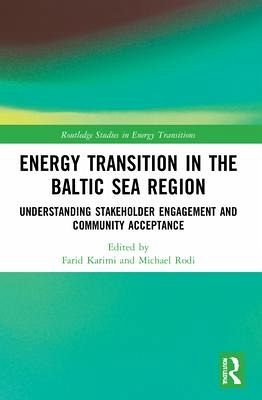
Energy Transition in the Baltic Sea Region
Understanding Stakeholder Engagement and Community Acceptance
Herausgegeben: Karimi, Farid; Rodi, Michael

PAYBACK Punkte
23 °P sammeln!
This book analyses the potential for active stakeholder engagement in the energy transition in the Baltic Sea Region (BSR) in order to foster clean energy deployment.Public acceptability and bottom-up activities can be critical for enduring outcomes to an energy transition. As a result, it is vital to understand how to unlock the potential for public, community and prosumer participation to facilitate renewable energy deployment and a clean energy transition - and, consequently, to examine the factors influencing social acceptability. Focussing on the diverse BSR, this book draws on expert con...
This book analyses the potential for active stakeholder engagement in the energy transition in the Baltic Sea Region (BSR) in order to foster clean energy deployment.
Public acceptability and bottom-up activities can be critical for enduring outcomes to an energy transition. As a result, it is vital to understand how to unlock the potential for public, community and prosumer participation to facilitate renewable energy deployment and a clean energy transition - and, consequently, to examine the factors influencing social acceptability. Focussing on the diverse BSR, this book draws on expert contributions to consider a range of different topics, including the challenges of social acceptance and its policy implications; strategies to address challenges of acceptability among stakeholders; and community engagement in clean energy production. Overall, the authors examine the practical implications of current policy measures and provide recommendations on how lessons learnt from this 'energy lab region' may be applied to other regions.
Reflecting an interdisciplinary approach in the social sciences, this book is an essential resource for scholars, students and policymakers researching and working in the areas of renewable energy, energy policy and citizen engagement, and interested in understanding the potential for bottom-up, grassroots activities and social acceptability to expedite the energy transition and reanimate democracies.
The Open Access version of this book, available at www.taylorfrancis.com, has been made available under a Creative Commons Attribution-Non Commercial-No Derivatives 4.0 license.
Public acceptability and bottom-up activities can be critical for enduring outcomes to an energy transition. As a result, it is vital to understand how to unlock the potential for public, community and prosumer participation to facilitate renewable energy deployment and a clean energy transition - and, consequently, to examine the factors influencing social acceptability. Focussing on the diverse BSR, this book draws on expert contributions to consider a range of different topics, including the challenges of social acceptance and its policy implications; strategies to address challenges of acceptability among stakeholders; and community engagement in clean energy production. Overall, the authors examine the practical implications of current policy measures and provide recommendations on how lessons learnt from this 'energy lab region' may be applied to other regions.
Reflecting an interdisciplinary approach in the social sciences, this book is an essential resource for scholars, students and policymakers researching and working in the areas of renewable energy, energy policy and citizen engagement, and interested in understanding the potential for bottom-up, grassroots activities and social acceptability to expedite the energy transition and reanimate democracies.
The Open Access version of this book, available at www.taylorfrancis.com, has been made available under a Creative Commons Attribution-Non Commercial-No Derivatives 4.0 license.





